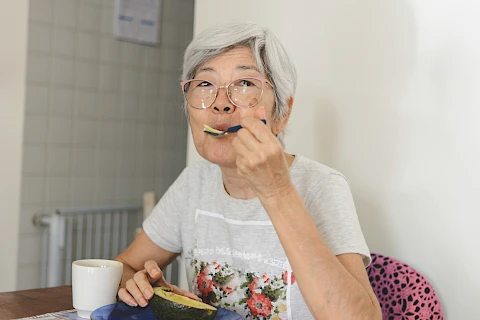
As we age, maintaining our health becomes more important, especially for seniors living with type 2 diabetes. Understanding how nutrition plays a vital role in managing diabetes can make a big difference in how you feel day to day. While it can take time to understand the dietary modifications necessary to support diabetes management, learning those skills can help enhance quality of life.
The Basics of Carbohydrates
Carbohydrates are a major source of energy for our bodies. However, they can significantly impact blood sugar levels, making it crucial to monitor their intake. For seniors with type 2 diabetes, choosing carbohydrates wisely is key. It's important to monitor your portion sizes to avoid spikes in blood sugar. Choose whole grains and fiber-rich foods that are absorbed more slowly. Opt for low-glycemic index foods, like whole oats, legumes, sweet potatoes, and most fruits, to help regulate blood sugar levels.
By understanding and controlling carbohydrate intake, you can better manage your diabetes and enjoy a variety of foods without worry.
Choosing Healthy Fats
Fats often get a bad reputation, but healthy fats are essential for our bodies, providing energy and supporting cell growth. Choosing the right fats can benefit seniors with type 2 diabetes by improving heart health. Incorporate healthy fats like avocados, nuts, and seeds, which are high in monounsaturated fats. Fatty fish like salmon and mackerel, rich in omega-3 fatty acids, are also excellent choices. Consider using olive oil as a substitute for butter or margarine in cooking.
By replacing unhealthy saturated fats with these healthier alternatives, you can support better heart health and more effectively control weight.
Consistent Meal Times
Establishing consistent meal times is another important strategy for managing blood sugar levels. Eating at regular intervals helps provide a steady stream of energy, avoiding sudden spikes or drops in blood sugar. To create a stable eating schedule, consider eating three balanced meals a day and small snacks in between if needed. Avoid skipping meals, which can lead to overeating later. Practice portion control to prevent overeating.
Consistent meal times paired with balanced meals can make managing diabetes much more straightforward.
Creating Diabetes-Friendly Meals
Planning and preparing diabetes-friendly meals doesn't have to be complicated. Focus on building balanced plates with a variety of nutrients to support your overall health. Here are some meal ideas:
- Breakfast: Whole grain toast with avocado and a side of berries.
- Lunch: Grilled chicken salad with mixed greens and a vinaigrette dressing.
- Dinner: Baked fish with steamed vegetables and quinoa.
Be sure to include a mix of carbohydrates, protein, and healthy fats in each meal for optimal nutrition.
Smart Snacking Strategies
Snacking can be a part of a diabetes management plan if done correctly. Choosing healthy snacks can help keep your blood sugar at an even keel and reduce hunger between meals. Consider diabetes-friendly snacks such as a small handful of nuts or seeds for a satisfying crunch, sliced veggies with hummus for a low-calorie filler, or Greek yogurt with a touch of cinnamon for a sweet treat.
Remembering portion control and practicing mindful eating are essential to prevent snacking from negatively affecting your blood sugar.
Help at Home for Seniors Managing Diabetes
Managing type 2 diabetes in seniors can be made easier with the right nutritional strategies. By understanding carbohydrates, choosing healthy fats, maintaining consistent meal times, planning diabetes-friendly meals, and incorporating smart snacks, you can take control of your health. Implement these tips to help maintain better blood sugar levels and improve your overall quality of life.
If you need more personalized support, Senior Helpers Lee's Summit / South Kansas City is here to help. Whether you're in Lees Summit, Kansas City, or Blue Springs, MO, reach out to learn more about our home care services, including how we can assist with nutrition support.